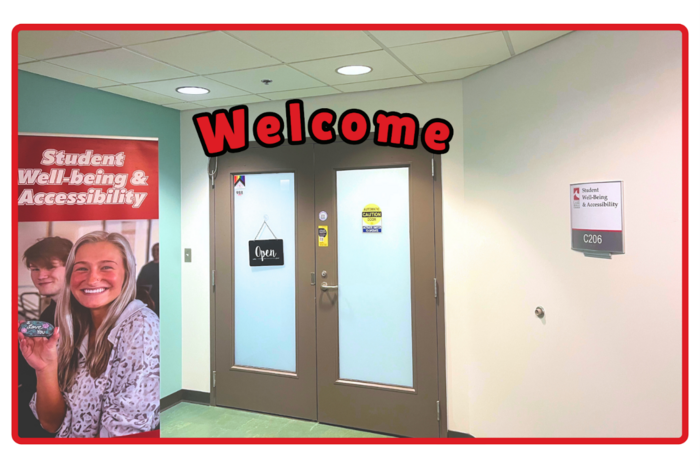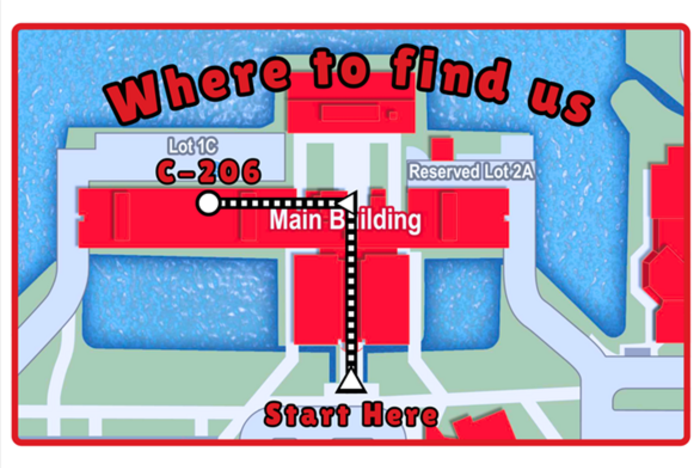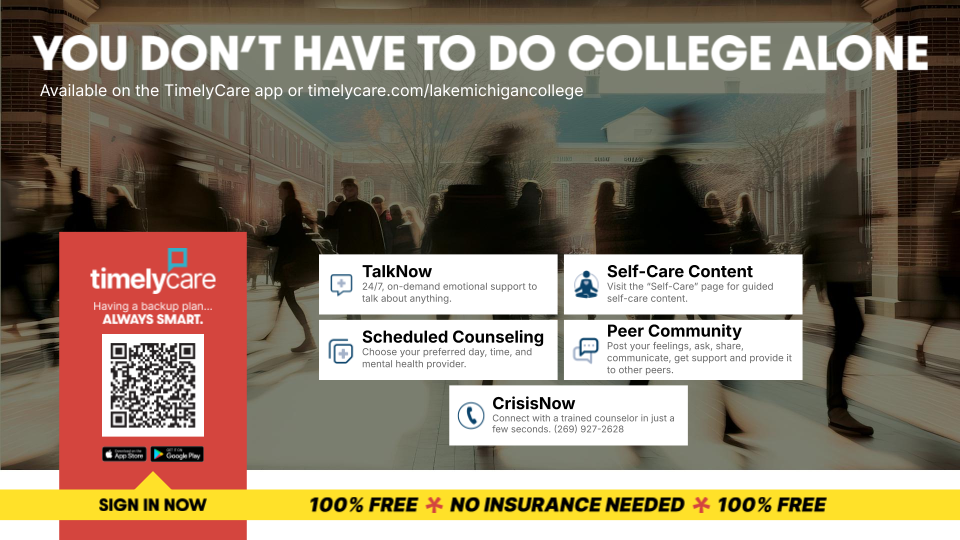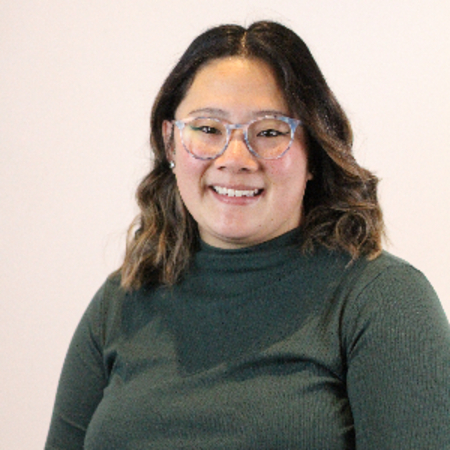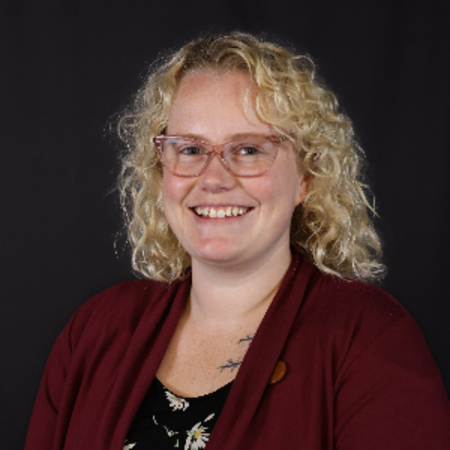Student Well-Being & Accessibility provides mental health counseling, basic needs support, and disability support services to students at Lake Michigan College.
Location
Benton Harbor Campus, Main Building, C-206
At Lake Michigan College, we’re committed to making sure every student has what they need to succeed. Student Well-Being & Accessibility provides accommodations and resources to ensure students with disabilities have equal access to classes, campus life, and every part of the LMC experience. Our goal is to support your success and help remove barriers along the way.
Location
Benton Harbor Campus, Main Building, C-206
Contact
(269) 927-8142
counseling@lakemichigancollege.edu
Hours
M-F; 8-5pm
Virtual sessions available by request
You’re Not Alone, Let’s Talk.
College life comes with challenges, and at times it can feel overwhelming or isolating. LMC counselors are here to support you through everyday stress as well as more serious concerns that can affect your academics, relationships, and overall well-being. Everyone has ups and downs, and reaching out for support is a strong and positive step.
Student Well-Being & Accessibility (SWBA) offers free, confidential mental health support to currently enrolled students.
Schedule an appointment
Email counseling@lakemichigancollege.edu, or Counseling Request Form >>
Welcome to Our Space
Front Entrance to the SWBA suite: Welcome!
Location: SWBA is located on the second floor in the C Wing.
Office Hours & After-Hours Support
Office Hours: Monday–Friday, 8:00 a.m.–5:00 p.m.
SWBA will not be open if LMC is closed for holidays.
After-Hours Crisis Support (24/7)
If support is needed outside of office hours:
- TimelyCare Crisis Now: 269-927-2828
- 988 Suicide & Crisis Lifeline: Call or text 988
If you are in immediate danger, call 911.
TimelyCare also offers additional after-hours support for LMC students, including scheduled virtual counseling services and immediate, short-term, solution-focused virtual care.
Connect with TimelyCare or select the TimelyCare tab for more information.
Frequently Asked Questions (FAQ)
TimelyCare Virtual Mental Health Services
Lake Michigan College has partnered with Timelycare, a virtual mental health provider, to offer free, confidential mental health support and 24-7 crisis support to all enrolled students, including those under 18.
In addition to the free and confidential mental health counseling offered in person and virtually through Student Well-Being & Accessibility, all LMC students can also access mental health and 24/7 crisis support via TimelyCare.
100% free and no insurance needed for LMC students.
Available Services Through TimelyCare
| Crisis Now: | 24/7 crisis phone support with real humans who get it. Connect immediately by phone with a licensed counselor. 269-927-2828. |
| Scheduled one-on-one Virtual Mental Health Counseling: | Pick a time, pick a counselor, and you’re set for your virtual counseling session. Six sessions available per academic year. |
| Talk Now: | Stressed and need support ASAP? Get a quick 20-minute (or less) check in with a counselor, available anytime, on demand. |
| Self-Care Content: | Access calming meditations, simple yoga flows, and quick tips whenever life gets loud. |
| Peer Community: | Post, ask for support, and connect with a community of students who truly get you. |
Visit timelycare.com/lakemichigancollege or download the TimelyCare app, then sign in with your LMC email address.
Hi, I’m Rachel. I’m a licensed social worker with a Master’s in Social Work from Western Michigan University.
Read moreI work within Lake Michigan College’s Student Well-Being and Accessibility Office to support students in accessing resourc
Read moreLeslie Navarro is an accomplished higher education leader dedicated to advancing student success, well-being, and equity a
Read more
